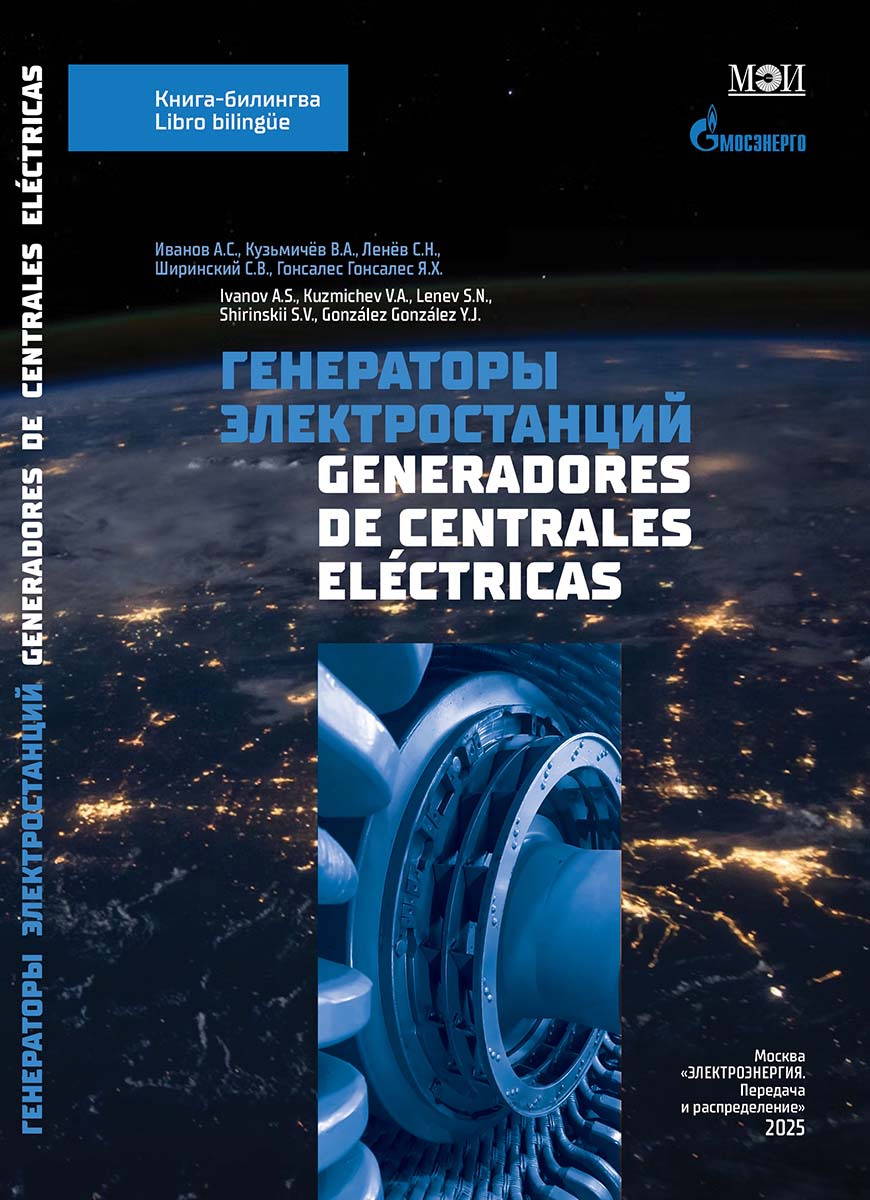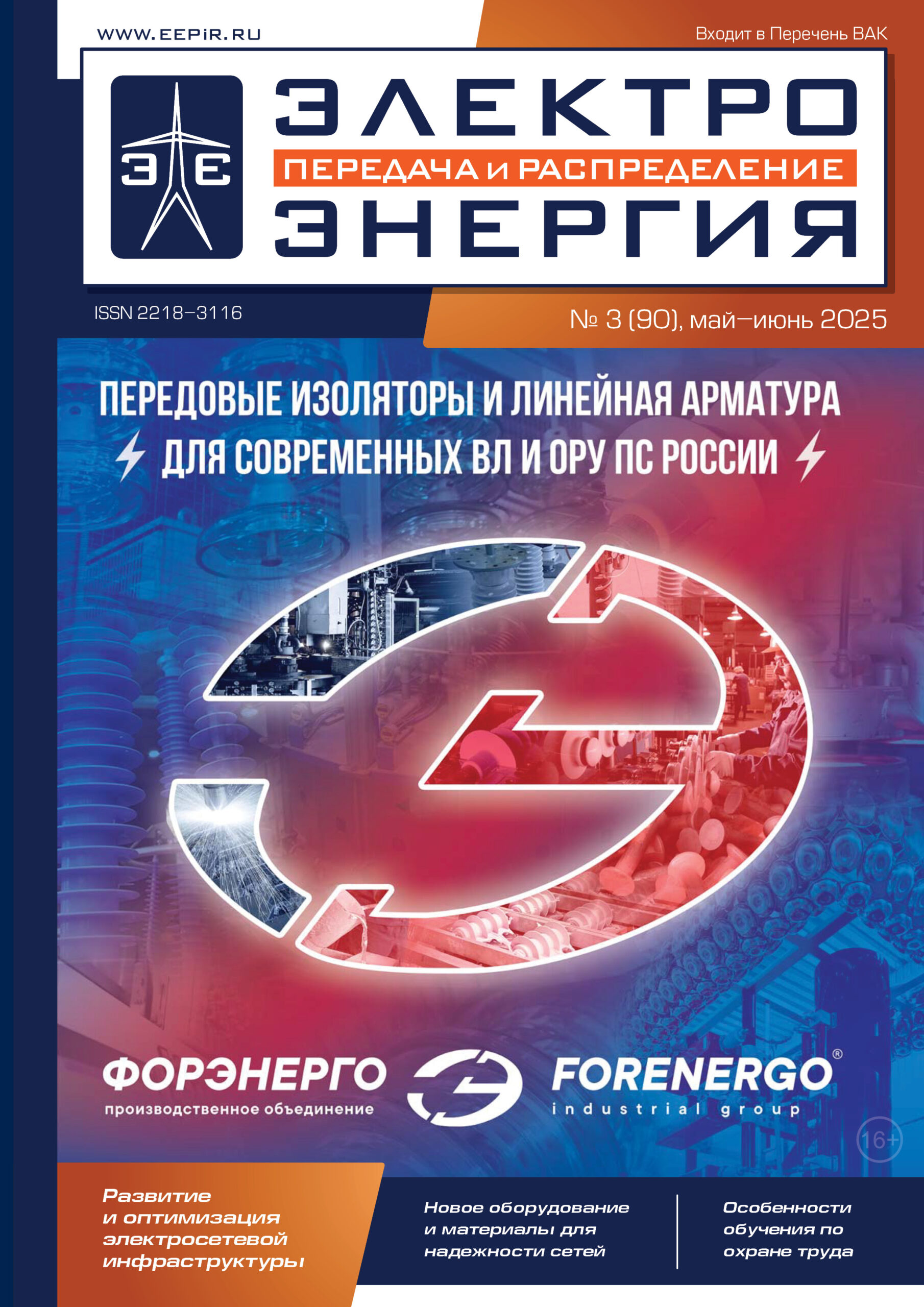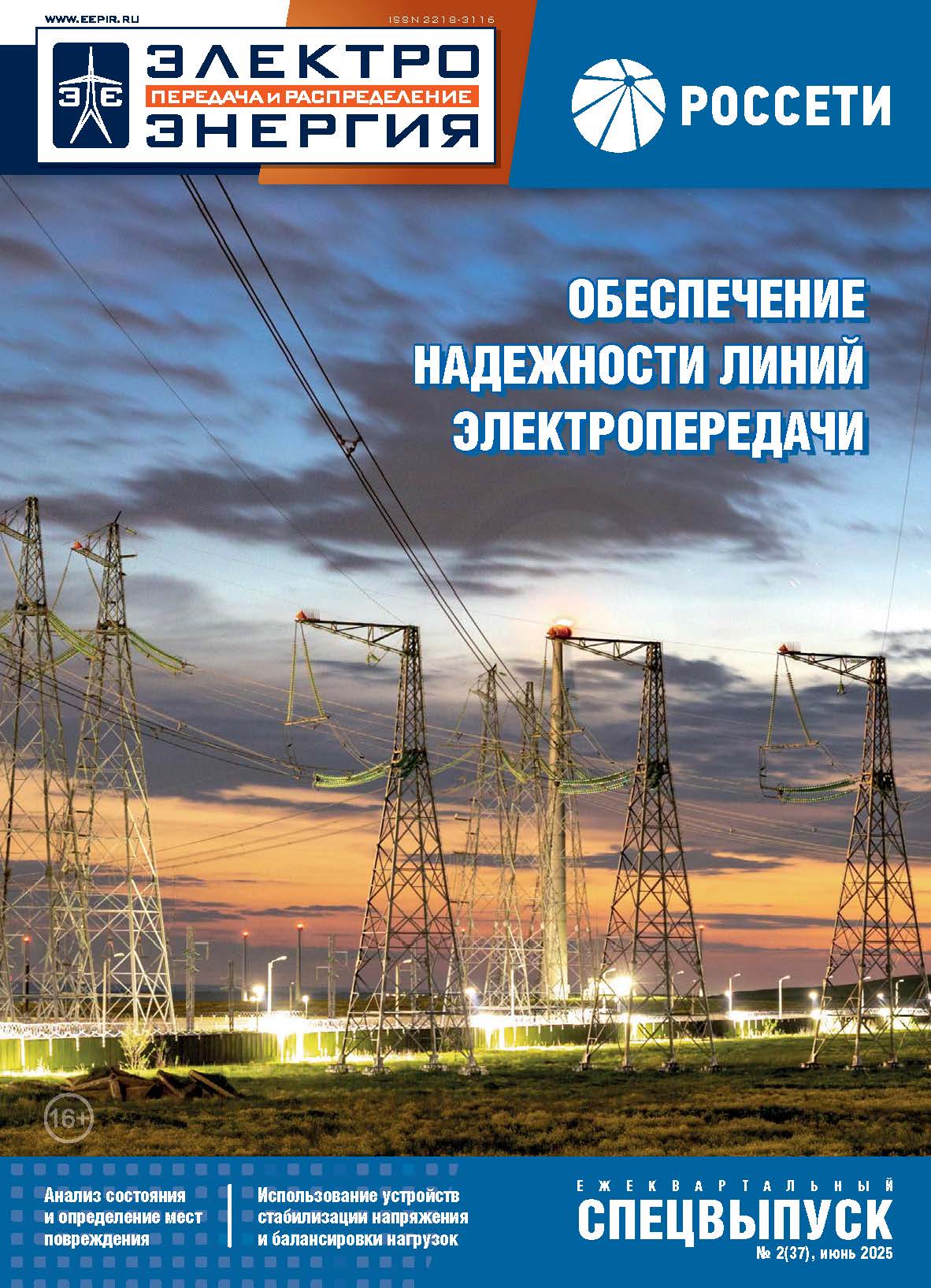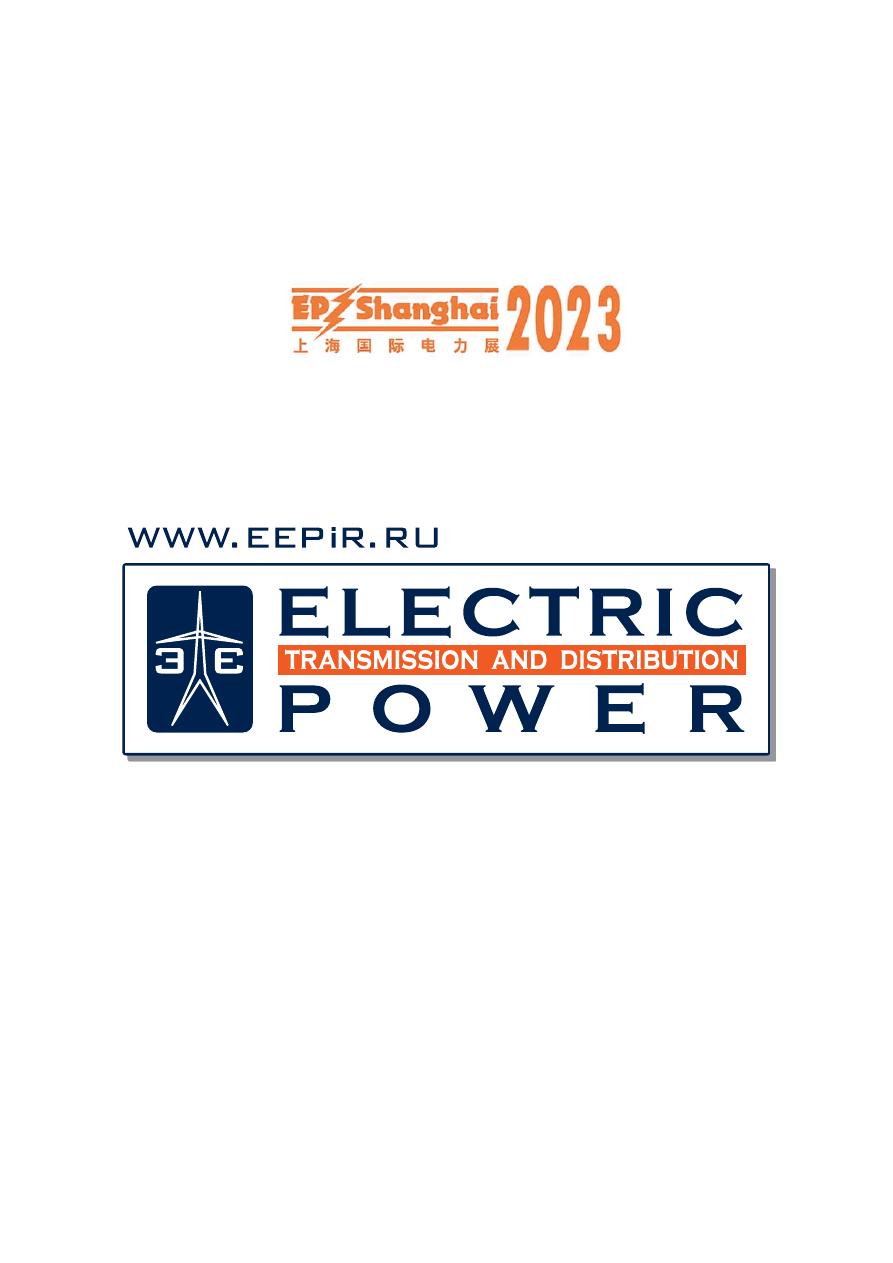
The MAIN JOURNAL for POWER GRID SPECIALISTS in RUSSIA
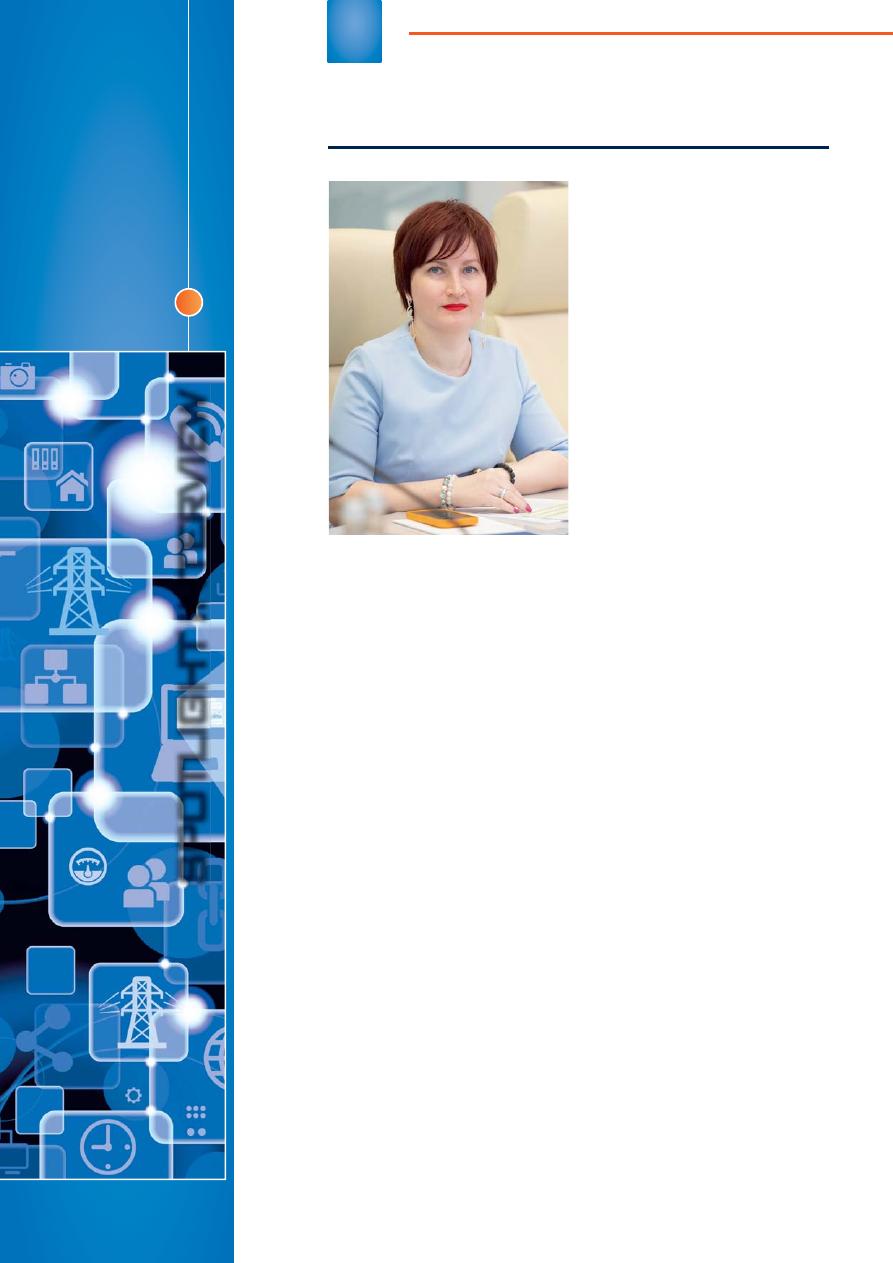
4
sp
ot
lig
ht
in
te
rv
iew
spotlight interview
Focus on Optimization
Ensuring reliable and high-
quality power supply to
consumers requires solving
a number of problems that
are still present in Russia’s
power grid complex. We talk
to Elena MEDVEDEVA, Direc-
tor of the Department of
Operational Management
in the Fuel and Energy
Complex of the Ministry of
Energy of the Russian Fed-
eration, about the key goals
and objectives for solving
the above-mentioned prob-
lems and on areas of coop-
eration with foreign experts.
— Ms. Medvedeva, how do
you assess the current situa-
tion in Russian power distribu-
tion networks? What goals and
tasks are priorities for distribu-
tion companies?
— Power distribution networks
are the most vulnerable in the elec-
tric power industry. It is the sector
where power outage often occurs.
The past winter once again
confirmed the existence of accu-
mulated problems related to its
technical condition. For example,
a 3% increase in the number of
accidents in distribution networks
has been noticed comparing to
the previous period. In some re-
gions the number of such acci-
dents increased by 1.5 times.
The abnormal weather caused
mass power outages to the popu-
lation. Their impact continues to be
signifi cant. In some cases, break-
down period was prolonged due
to a substantial damage in elec-
tric power distribution networks
and was accompanied by lengthy
emergency recovery work. In
2022-2023 autumn-winter period,
22 widespread violations resulted
in loss of power supply for about
50,000 people while recovery time
was up to three days.
By order of the President of
the Russian Federation, we are
introducing single responsibility
centers for reliable electric power
supply for each region – a back-
bone local grid operator (the larg-
est state-owned grid company in
the region) in order to improve
the situation with energy supply
to consumers. The introduction
of the backbone local grid opera-
tor will ensure a uniform technical
policy that will make it possible to
bring the facilities of other local
grid operators up to the level of
the backbone company. When
a competent, technically and
technologically capable company
with well-trained staff is in charge
of local networks, then mass
power outages and their impact
will occur less, even in extreme
weather conditions.
— What innovation solu-
tions (experience) of colleagues
from other countries can be
used in Russia and vice versa to
strengthen cooperation in the
power industry sector?
— Power industry is based
on principles of consistency, so
it is important for us, together
with our colleagues, to improve

EP Shanghai 2023
Special issue, November 2023
5
the effi ciency of cooperation
by implementing comprehensive
measures such as strengthening,
developing and ensuring paral-
lel operation of national grids. For
example, cooperation with col-
leagues from CIS is carried out on
a regular basis through the Eur-
asian Economic Commission, the
CIS Electric Power Council and
other professional associations.
I note that Russia is the devel-
oper of the technical regulation
"On Safety of High Voltage Equip-
ment" with the direct participation
of The Eurasian Economic Union
(EAEU) members.
Also, our country is currently
working on the creation of a testing
center for world-class high-voltage
equipment. In the future, units of
foreign colleagues will also be able
to be tested at our site, which will
help strengthen our cooperation in
the electric power industry.
In addition, our manufactur-
ers actively cooperate with col-
leagues from other countries in
terms of supplying domestic elec-
trical engineering equipment.
— In your opinion, how
should the technical policy of
Russian power grid companies
be adjusted to meet the chal-
lenges of the time?
— I believe that now the
technical policy of power indus-
try should be based on the prin-
ciples of achieving technological
sovereignty. It is important for
companies to have in operation
the equipment that they can cer-
tainly maintain and repair with-
out regard to the global econom-
ic situation. In particular, this
applies to investment projects.
Within this approach the power
sector will be able to forecast its
activities on a long-term hori-
zon and to fulfil its commitments
without delay.
In addition, today it is important
that the companies' technical pol-
icy is aligned with a risk-oriented
approach and focused on current
manufacturing activity for reliable
and continuous power supply to
consumers. If a proper balance is
ensured, development issues can
be adjusted for later prospects.
It is noteworthy that using the
above priorities as a guide we
have organized the necessary le-
gal and regulatory framework to
handle the issues of technological
functioning of facilities and elec-
tric power systems.
— Enormous funds are an-
nually invested in the mainte-
nance and development of pow-
er distribution networks. How
are these funds distributed?
How are the reliability indexes
of power distribution networks
changing?
— It is common knowledge
that over the past 20 years, main
investments have been directed in
maintaining and improving the re-
liability of backbone facilities (with
the voltage level of 110 kV and
above, more rarely – 35 kV), as
well as in the prospective network
development to ensure the avail-
ability of infrastructure for new
consumers.
It turned out that the growth
rate of new consumers' needs was
higher than the growth of invest-
ment funds required to cover all
their needs. Consequently, con-
sidering priorities, underfunding
of the distribution networks has
emerged. Despite a proper level
of the backbone network reliability,
most consumers are currently sub-
ject of restrictions in power supply
due to the “last mile” situation.
Having considered these topi-
cal issues, in some regions pro-
grammes to improve the distri-
bution network’s reliability are
currently being developed and
implemented. We are also re-
viewing the repair and investment
programmes of grid companies in
favour of distribution networks.
— In certain sectors of
Russian industry, simplifica-
tion of standards is currently
practiced to make the domes-
tic market more accessible to
new manufacturers. Is anything
similar planned in the power in-
dustry?
— Regarding the issues on re-
liability and safety of electric pow-
er facilities, simplifi cation of stan-
dards in the sector is not planned,
as this will defi nitely aff ect the qual-
ity of power supply to consumers.
We consider the current industry
requirements to be suffi cient.
Nevertheless, it is necessary
to strike a balance between equip-
ment manufacturers, operating or-
ganizations and consumers. We
must provide such legal and eco-
nomic conditions for import substi-
tution to develop a competitive en-
vironment represented by various
companies having the necessary
competences to fully meet the in-
dustry demand. At the same time,
monopolistic structure will not be
broadly responsible for import sub-
stitution and promote the ultimate
goal of achieving national techno-
logical sovereignty.
— Is it planned to strength-
en control over the activities of
power distribution companies?
— In my opinion, today we al-
ready have a sufficiently effective
system of control over the activi-
ties of network organizations oper-
ating power distribution networks
both by the Ministry of Energy of
the Russian Federation and at
the regional level. It is important
to prevent complications and un-
necessary administrative barriers
in the network companies’ opera-
tion and to ensure clear rules for
pursuit of activities.
The tariffs set by Regional En-
ergy Commissions for network
organizations directly depend on
network companies' compliance
with planned indicators. Failure
to meet the relevant indicators is
also grounds for revoking the sta-
tus of a local grid company.
In addition, the legislation pre-
scribes for another level of influ-
ence on network organizations. It
is the right of electric power users
to reduce the charge for electric
power supply services if utility
providers carry out them of poor-
quality.
Thus, currently we believe that
there is no need to tighten the ex-
isting control system. It is neces-
sary to fully use the existing legal
arrangements.
Interviewed by
Alexander Pavlov
Оригинал статьи: Focus on Optimization
Ensuring reliable and high-quality power supply to consumers requires solving a number of problems that are still present in Russia’s power grid complex. We talk to Elena MEDVEDEVA, Director of the Department of Operational Management in the Fuel and Energy Complex of the Ministry of Energy of the Russian Federation, about the key goals and objectives for solving the above-mentioned problems and on areas of cooperation with foreign experts.




